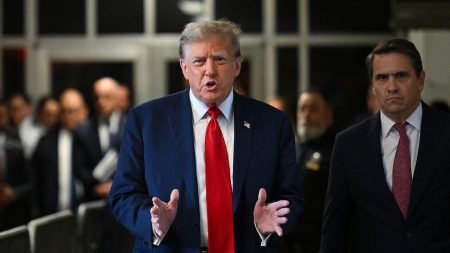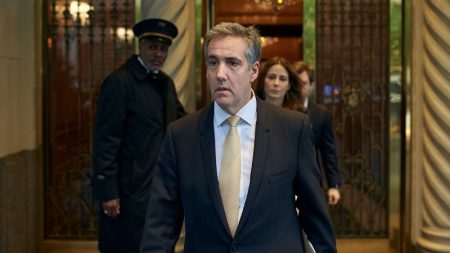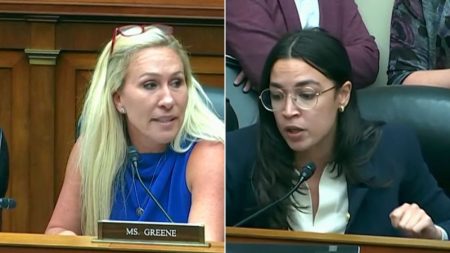Former President Donald Trump has consistently displayed a lack of faith in election results throughout his political career. Whether he wins or loses, he questions the legitimacy of the results. This pattern has been evident in his responses to questions about accepting election outcomes, where he often deflects or refuses to commit to acknowledging the results. Despite winning the 2016 election, Trump continued to cast doubt on its legitimacy by falsely claiming voter fraud without evidence, leading to a lack of acceptance of the election results that he himself had won.
Even in the 2020 election, where he ultimately lost to Joe Biden, Trump refused to accept the outcome and instead fueled baseless claims of voter fraud, particularly focusing on mail-in voting. This refusal to acknowledge defeat culminated in the events of January 6, 2021, when his supporters stormed the Capitol building in protest of the Electoral College vote count. Trump’s rhetoric and actions have raised concerns about the integrity of the electoral process and his willingness to respect the rule of law.
Despite currently leading in some polls for the upcoming election, Trump remains skeptical about the honesty of the electoral process and has indicated that he will “let it be known” if he believes there are issues with the election. While he expects to win, he also hints at potential challenges to the election results, laying the groundwork for possible rejection of the outcome if it does not align with his expectations. This approach reflects a continued lack of faith in the electoral system and a willingness to contest results that do not favor him.
Trump’s attacks on election integrity have extended beyond his own candidacy, leading to a decline in confidence in US elections among Republicans. The decrease in trust among Republicans in the accuracy of vote counting is significant, dropping from 92% in 2006 to just 40% in 2022. This trend is concerning as it reflects a broader skepticism among GOP supporters about the fairness of the electoral process, which can have far-reaching implications for democracy and governance in the country.
While Trump’s rivals may also question the legitimacy of election outcomes, as seen with Hillary Clinton’s comments about his victory in 2016, there is a distinction in how they accept defeat. Clinton, despite her concerns, still acknowledged Trump’s victory and emphasized the importance of the peaceful transfer of power in democracy. In contrast, Trump’s refusal to accept election results, even in the face of evidence or public opinion, raises doubts about his commitment to upholding democratic principles and respecting the will of the voters. Regardless of the outcome in future elections, there are concerns about Trump’s willingness to adhere to the democratic process and peacefully transition power if needed.















